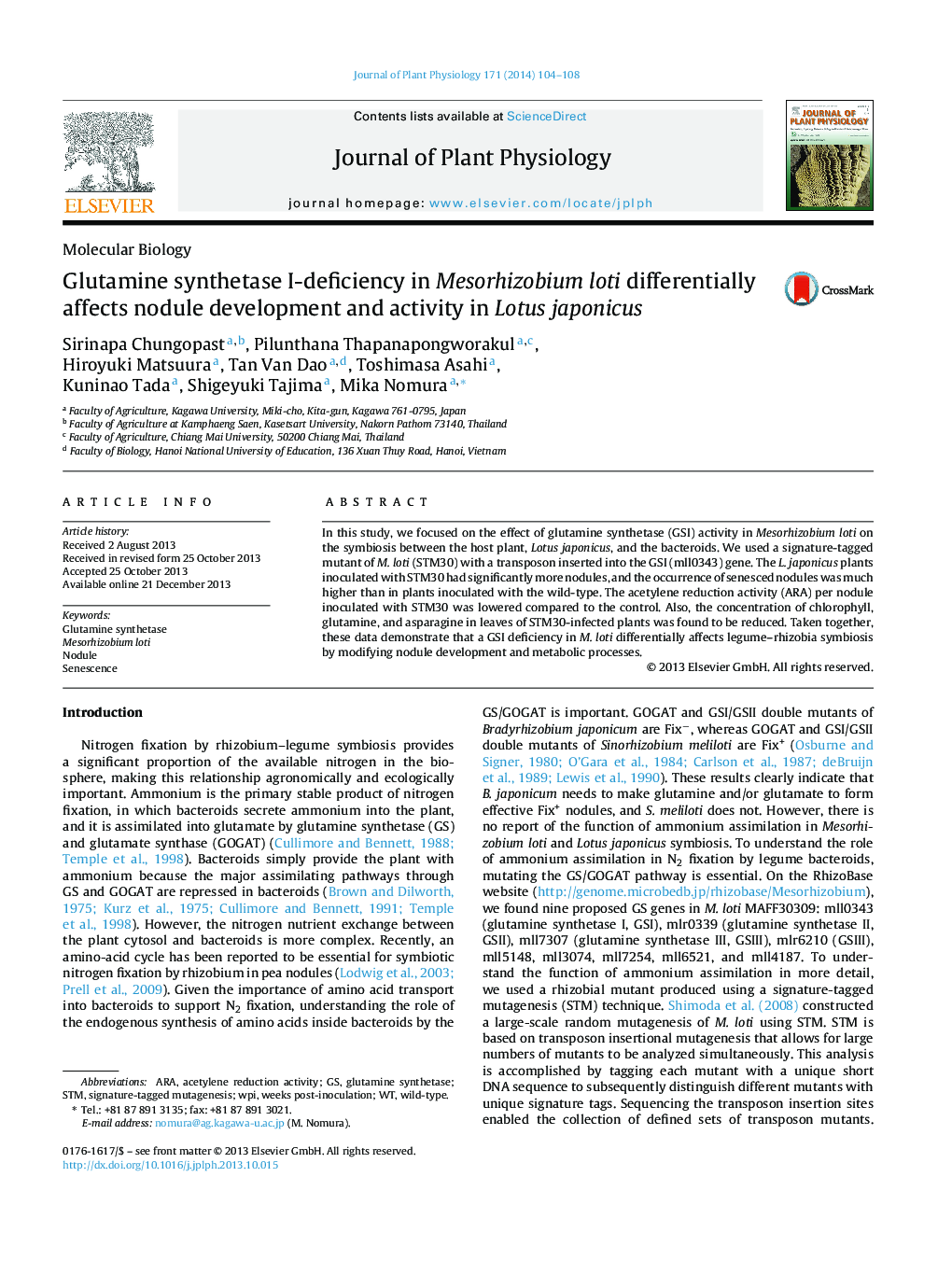| Article ID | Journal | Published Year | Pages | File Type |
|---|---|---|---|---|
| 10876896 | Journal of Plant Physiology | 2014 | 5 Pages |
Abstract
In this study, we focused on the effect of glutamine synthetase (GSI) activity in Mesorhizobium loti on the symbiosis between the host plant, Lotus japonicus, and the bacteroids. We used a signature-tagged mutant of M. loti (STM30) with a transposon inserted into the GSI (mll0343) gene. The L. japonicus plants inoculated with STM30 had significantly more nodules, and the occurrence of senesced nodules was much higher than in plants inoculated with the wild-type. The acetylene reduction activity (ARA) per nodule inoculated with STM30 was lowered compared to the control. Also, the concentration of chlorophyll, glutamine, and asparagine in leaves of STM30-infected plants was found to be reduced. Taken together, these data demonstrate that a GSI deficiency in M. loti differentially affects legume-rhizobia symbiosis by modifying nodule development and metabolic processes.
Related Topics
Life Sciences
Agricultural and Biological Sciences
Agronomy and Crop Science
Authors
Sirinapa Chungopast, Pilunthana Thapanapongworakul, Hiroyuki Matsuura, Tan Van Dao, Toshimasa Asahi, Kuninao Tada, Shigeyuki Tajima, Mika Nomura,
